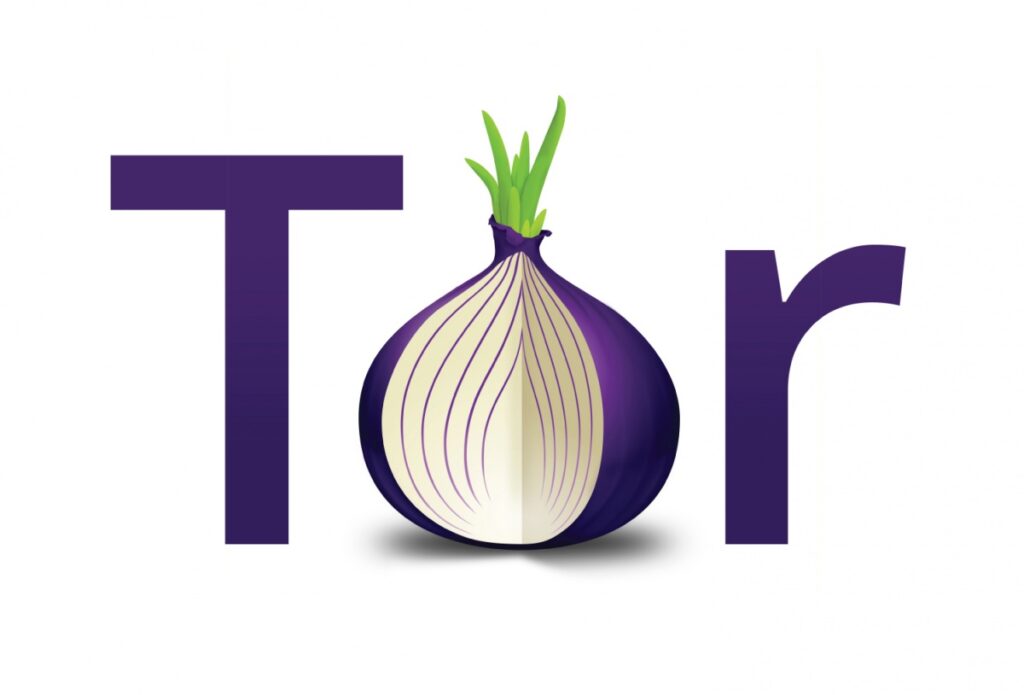In an age where online privacy is increasingly at risk, finding reliable tools to safeguard your anonymity and protect your digital footprint has become more important than ever before. While Tor has been a popular choice for those seeking online anonymity, it’s crucial to explore the plethora of alternatives available that cater to different needs and preferences. In this comprehensive guide, we’ll delve into the features, limitations, and the pressing need to look for a Tor alternative. We’ll also shed light on what sets Tor apart from the rest. Additionally, we’ll explore nine commonly used Tor alternatives, followed by a discussion of the key factors to consider when choosing the perfect Tor alternative.
Understanding Tor: Features and Limitations
Tor, short for The Onion Router, is an open-source network that enables users to browse the internet anonymously. It routes your internet traffic through a series of volunteer-operated servers, encrypting it at each step to obfuscate your IP address and online activity. Tor’s primary features include:
1. Anonymity:
Tor conceals your IP address, making it challenging for anyone, including websites, advertisers, and government agencies, to track your online presence.
2. Censorship Resistance:
It allows users in countries with strict censorship to access blocked content and communicate freely.
3. Hidden Services:
Tor enables websites to operate anonymously as hidden services, offering increased privacy and security.
Limitations Of Tor
Despite its many advantages, Tor does come with some limitations:
1. Speed:
Due to the multi-layered routing, Tor can be slower compared to regular internet browsing.
2. Not Suitable for All Activities:
Tor may not be the best choice for activities that require high bandwidth or real-time data, such as streaming or online gaming.
3. Exit Node Risks:
When data exits the Tor network at an exit node, it becomes vulnerable to surveillance, so using HTTPS is crucial for secure browsing.
What Sets Tor Apart?

Before diving into Tor alternatives, it’s essential to understand what sets Tor apart:
1. Community-Driven:
Tor relies on a global community of volunteers who maintain and operate its network, emphasizing transparency and security.
2. Proven Track Record:
Over the years, Tor has established itself as a reliable tool for online anonymity, gaining the trust of privacy-conscious users.
3. Hidden Services:
Tor’s unique feature of supporting hidden services sets it apart by allowing websites to operate securely and anonymously.
Why Seek a Tor Alternative?

While Tor is an excellent tool for many, there are compelling reasons why individuals may seek alternatives:
1. Speed and Performance:
As mentioned earlier, Tor can be slow due to its routing process. Users looking for faster browsing experiences may opt for alternatives that offer improved speed.
2. Specific Use Cases:
Some users require anonymity for particular activities, such as torrenting or secure messaging. Alternative tools may cater better to these specific needs.
3. Evolving Threat Landscape:
The internet’s landscape is continually evolving, with new threats and challenges emerging. Exploring alternatives can provide additional layers of protection.
Commonly Used Tor Alternatives For Ensuring Online Privacy

Now, let’s explore some of the commonly used Tor alternatives, each with its own unique features and advantages.
1. I2P (Invisible Internet Project)
I2P, the Invisible Internet Project, is an anonymous overlay network designed to provide secure and private communication. It operates similarly to Tor but places a strong focus on hidden services and peer-to-peer communication. Key features include:
- Decentralization: I2P operates on a decentralized network of routers, making it resistant to censorship and surveillance.
- Hidden Services: Similar to Tor, I2P allows websites to operate as hidden services, ensuring anonymity.
- Secure Messaging: I2P offers built-in secure messaging and file-sharing capabilities.
2. Freenet
Freenet is a decentralized and censorship-resistant network that focuses on distributing and accessing content without centralized control. Its key features include:
- Distributed Data Storage: Freenet stores content across a distributed network of nodes, making it resistant to takedowns.
- Content Privacy: Content on Freenet is encrypted and distributed, ensuring user privacy.
- Anonymous Publishing: Users can publish content on Freenet anonymously, promoting freedom of expression.
3. ZeroNet
ZeroNet is a decentralized web platform that utilizes Bitcoin cryptography and BitTorrent technology to create a peer-to-peer network for hosting websites. Its notable features include:
- Decentralized Websites: Websites on ZeroNet are hosted by users, eliminating centralized servers.
- Offline Access: Users can access ZeroNet websites even when disconnected from the internet.
- Blockchain Integration: ZeroNet leverages blockchain technology for domain registration and content authenticity.
4. GNUnet
GNUnet is an open-source framework designed for secure and decentralized peer-to-peer networking. Its features encompass:
- Secure File Sharing: GNUnet offers secure and anonymous file-sharing capabilities.
- Decentralization: The network is decentralized, reducing the risk of censorship and surveillance.
- Privacy-Enhancing Technologies: GNUnet incorporates various privacy-enhancing technologies to protect user data.
5. Whonix
Whonix is not a network but an operating system focused on privacy and security. It runs within a virtual machine and routes all traffic through the Tor network by default. Its features include:
- Isolation: Whonix isolates the user’s activities from the host system, ensuring enhanced security.
- Streamlined Tor Integration: Whonix simplifies the process of using Tor for maximum anonymity.
- Security-Focused: Whonix emphasizes security and privacy by design.
6. ProxyChains
ProxyChains is a command-line tool that enables users to route network traffic through multiple proxy servers. While not as secure as Tor, it offers some level of anonymity. Key features include:
- Proxy Chaining: ProxyChains allows users to chain multiple proxy servers for added anonymity.
- Customization: Users can configure ProxyChains to suit their specific privacy needs.
- Ease of Use: ProxyChains is relatively easy to set up and use for basic anonymity.
7. VPN Services
While not strictly an alternative to Tor, VPN services can provide anonymity and privacy to some extent. Notable features include:
- Geo-Spoofing: VPNs allow users to mask their IP addresses and appear as if they are browsing from a different location.
- Encryption: VPNs encrypt internet traffic, making it difficult for third parties to intercept.
- Diverse Server Locations: VPN services offer servers in various countries, providing options for bypassing geo-restrictions.
8. Tails
The Amnesic Incognito Live System (Tails) is a live operating system that prioritizes privacy and security. It routes all internet traffic through the Tor network by default. Key features include:
- Live Boot: Tails can be booted from a USB drive or DVD, leaving no trace on the host system.
- Built-In Tor Integration: Tails offers seamless integration with Tor for secure browsing.
- Privacy-Centric Apps: Tails includes pre-installed applications focused on privacy and anonymity.
9. JonDonym
JonDonym (formerly known as JAP) is a privacy network that provides anonymity for web browsing and other internet activities. Features include:
- Proxy Cascades: JonDonym routes traffic through multiple proxy servers, enhancing anonymity.
- User-Friendly Interface: JonDonym offers an accessible interface for users seeking privacy.
- Data Retention Policies: JonDonym follows strict data retention policies, further safeguarding user information.
Factors To Consider While Choosing The Perfect Tor Alternative

When selecting the ideal Tor alternative, several crucial factors come into play. Let’s explore these considerations:
1. Anonymity Requirements
Determine the level of anonymity you require for your online activities. Some alternatives may offer stronger anonymity features than others, depending on your needs.
2. Speed and Performance
Consider the speed and performance of the alternative. If you prioritize faster browsing, opt for alternatives that offer improved speed compared to Tor.
3. Specific Use Cases
Identify your specific use cases. If you have particular activities that demand anonymity, such as torrenting or secure messaging, choose an alternative that caters to those needs.
4. Community and Support
Evaluate the community and support surrounding the alternative. A strong community can provide valuable resources and assistance.
5. Transparency and Trust
Research the transparency and trustworthiness of the alternative. Look for open-source solutions with a track record of prioritizing user privacy.
Conclusion
In the ever-evolving landscape of online privacy, exploring Tor alternatives is a prudent choice. While Tor remains a stalwart in the realm of online anonymity, the diverse range of alternatives available allows users to tailor their privacy solutions to their unique needs. Whether it’s I2P’s focus on secure communication, Freenet’s censorship resistance, or Whonix’s emphasis on security, these alternatives provide a robust shield against the ever-watchful eyes on the internet. By considering the factors that matter most to you, you can confidently select the perfect Tor alternative to protect your online privacy.









